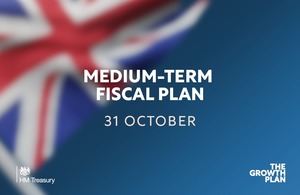Mental health funding of £1.8m welcomed by MHRA and NICE to explore regulation of digital mental health tools
There has been a large increase in the number of digital mental health tools on the market in recent years. However, these products present regulatory challenges such as clarity around whether they are medical devices and, if so, which risk classification they would fall under.
Wellcome has therefore provided £1.8m of funding to help improve regulatory certainty and safety in this high growth, high impact area, focussing on producing guidance for appropriate, risk-proportionate regulation of digital mental health products.
The project will review key aspects of medical device regulations to produce guidance that will support digital mental health in several significant areas. These include determining what qualifies as a medical device, the risk classification they would fall under, as well as a review of the current evidence base for these devices.
To do this, we will engage with and learn from people with lived experience, subject experts and patients to inform their conclusions, as well as working with international partners to help drive shared learning and consensus in digital mental health regulations globally.
In this way, it is hoped that certain mental health software will be proportionately regulated as a medical device, meaning the public has access to effective and safe products that can significantly help protect or improve their mental health.
Minister for Mental Health, Dr Caroline Johnson, said:
Digital mental health tools can be incredibly useful to help build resilience and prevent problems worsening, but it’s crucial these are regulated properly.
This funding will help us to better understand these products and give us the tools to make sure everyone who uses them has access to safe, effective support.
Johan Ordish, Head of Software and AI at the MHRA said:
Digital mental health tools offer millions of people vital support and guidance to explore and help manage their mental health issues every day.
However, there are a number of regulatory complexities in establishing when these products should be regulated and what evidence they must have to demonstrate safety and effectiveness.
We need to make sure that we are able to answer these questions, to ensure that patients can be confident in the choices they make to support their mental health.
Mark Salmon, programme director for Information Services at NICE, said:
This work is one way both organisations can simplify and streamline the process of getting wide-scale adoption of safe, clinical and cost-effective digital mental health products into the hands of the people who need them and help ease the pressure on the NHS.
Dr Miranda Wolpert, Director of Mental Health at Wellcome, said:
As an increasing number of people turn to digital tools for support with mental health problems, we believe that getting the right level of regulation is vital.
At Wellcome, we support the development of new and improved interventions for mental health, which includes digital interventions. One of the ways that we can encourage the development of tools that genuinely help and support as many people as possible will be through risk-appropriate guidance and regulation.
The MHRA will be engaging with and learning from people with lived experience of mental health conditions, helping to ensure that that the regulation is at the right level, relevant and robust.
